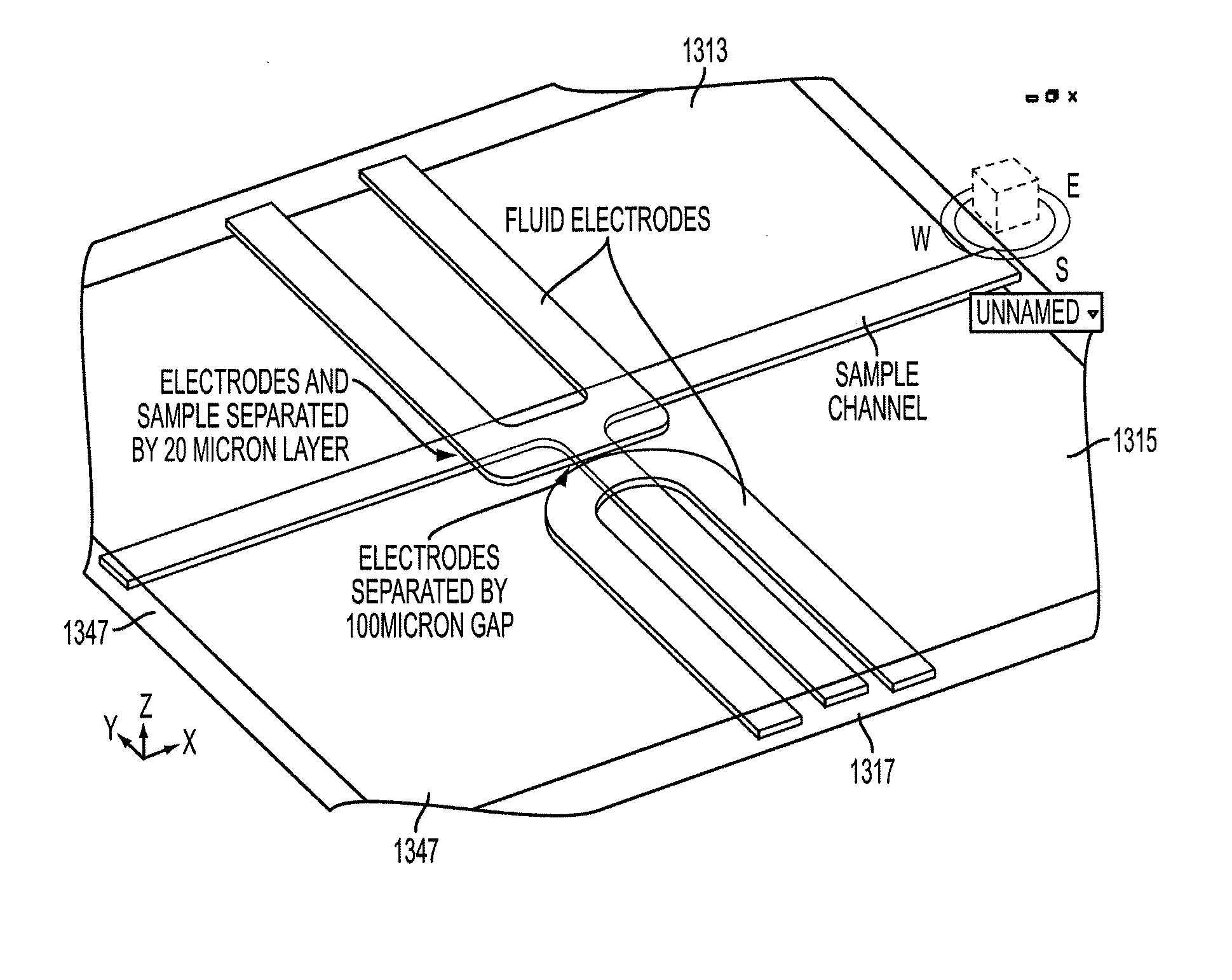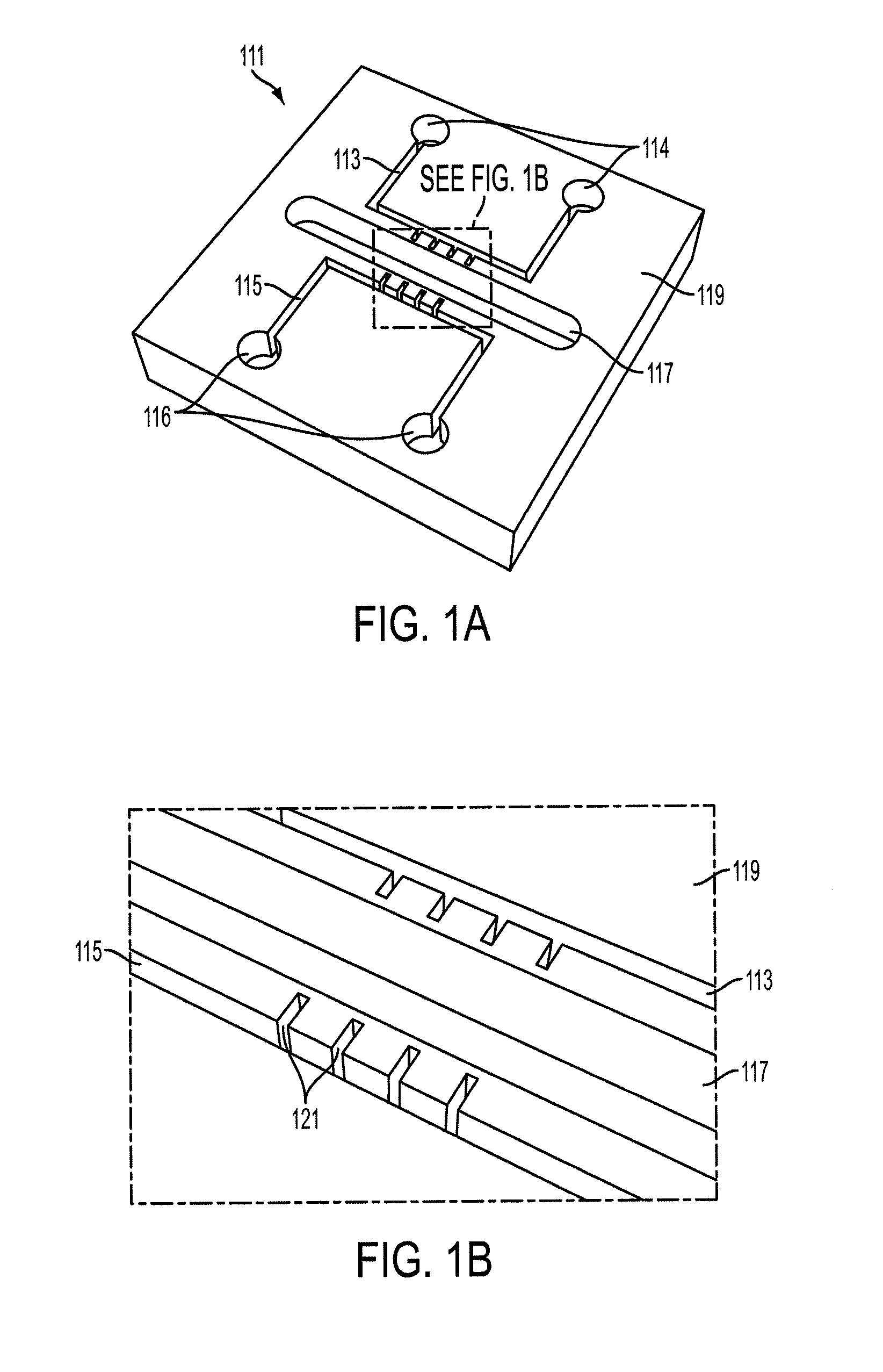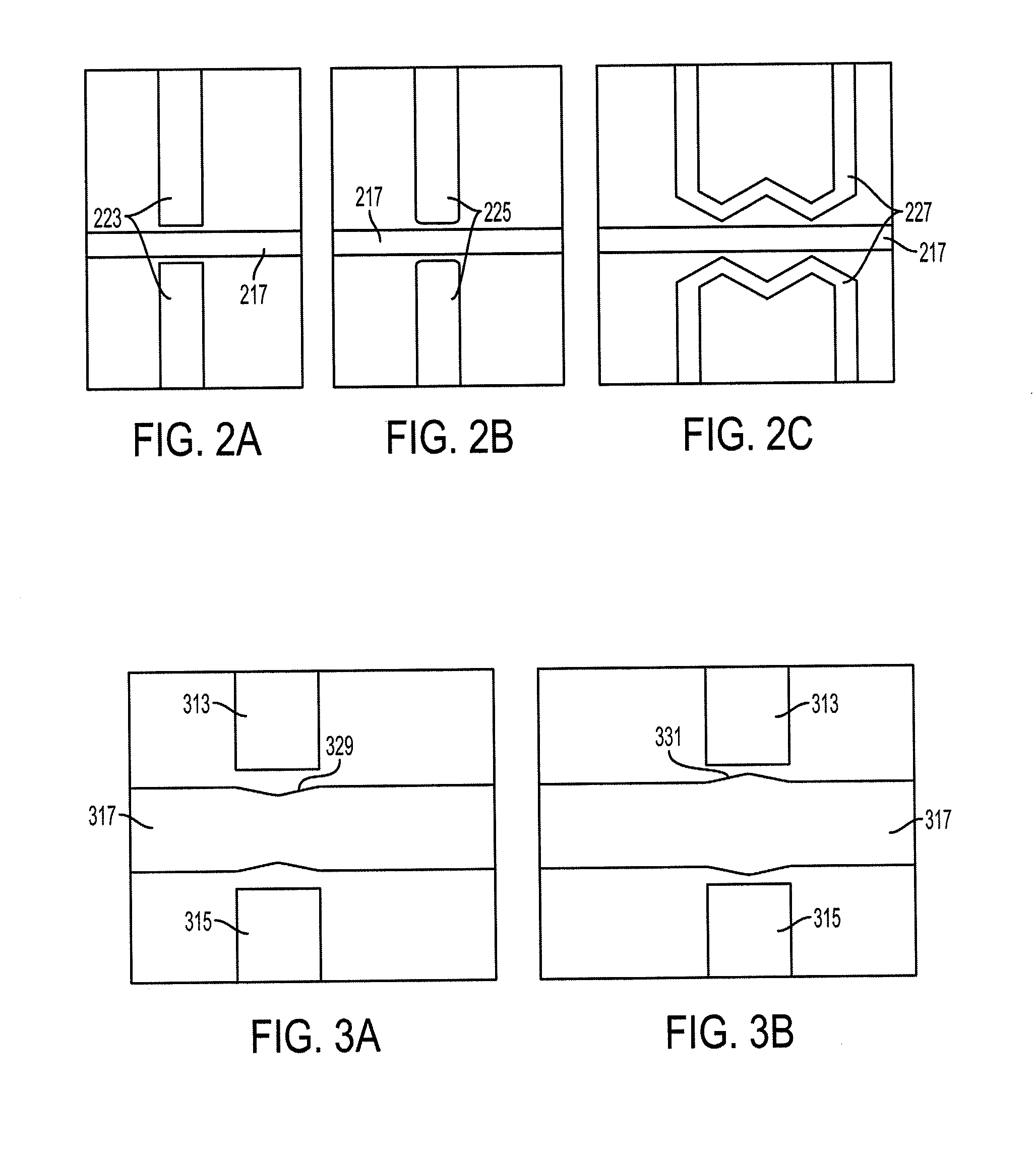Devices and methods for contactless dielectrophoresis for cell or particle manipulation
a technology of dielectrophoresis and cell, applied in the direction of fluid pressure measurement, liquid/fluent solid measurement, peptide measurement, etc., to achieve the effect of better maintaining the integrity of the sampl
- Summary
- Abstract
- Description
- Claims
- Application Information
AI Technical Summary
Benefits of technology
Problems solved by technology
Method used
Image
Examples
example 1
Separation of Cells Using cDEP
[0128]Background
[0129]Efficient biological particle separation and manipulation is a crucial issue in the development of integrated microfluidic systems. Current enrichment techniques for sample preparation include density gradient based centrifugation or membrane filtration (57), fluorescent and magnetic activated cell sorting (F / MACS) (61), cell surface markers (55), and laser tweezers (49). Each of these techniques relies on different cell properties for separation and has intrinsic advantages and disadvantages. Typically more sensitive techniques may require prior knowledge of cell-specific markers and antibodies to prepare target cells for analysis.
[0130]One alternative to these methods is dielectrophoresis (DEP) which is the motion of a particle due to its polarization in the presence of a non-uniform electric field (28,29). Currently, typical dielectrophoretic devices employ an array of thin-film interdigitated electrodes placed within the flow o...
example 2
Selective Isolation of Live / Dead Cells Using Contactless Dielectrophoresis (cDEP)
[0188]Introduction
[0189]Isolation and enrichment of cells / micro-particles from a biological sample is one of the first crucial processes in many biomedical and homeland security applications (1). Water quality analysis to detect viable pathogenic bacterium (2-6) and the isolation of rare circulating tumor cells (CTCs) for early cancer detection (7-19) are important examples of the applications of this process.
[0190]Dielectrophoresis (DEP) is the motion of a particle in a suspending medium due to the presence of a non-uniform electric field (28, 29). DEP utilizes the electrical properties of the cell / particle for separation and identification (29, 66). The physical and electrical properties of the cell, the conductivity and permittivity of the media, as well as the gradient of the electric field and its applied frequency are substantial parameters determining a cell's DEP response.
[0191]One unique advant...
example 3
Biological Particle Enrichment Utilizing cDEP
[0233]Introduction
[0234]The selective separation of target particles from a sample solution is an indispensable step in many laboratory processes [1]. Sensitive analysis procedures, especially those in the biomedical field, often require a concentration procedure before any analysis is performed. Several methods to perform this concentration have arisen including: density gradient based centrifugation or filtration [57], fluorescent and magnetic activated cell sorting, cell surface markers [55], and laser tweezers [79]. While, each of these techniques is unique in its inherent advantages and disadvantages, all are forced to compromise between high sample throughput and highly specific isolation. The more selective of these techniques oftentimes require extensive sample preparation before being performed. If the automation of laboratory analysis procedures is to be facilitated, a concentration technique capable of high sample throughput as...
PUM
| Property | Measurement | Unit |
|---|---|---|
| Angle | aaaaa | aaaaa |
| Angle | aaaaa | aaaaa |
| Electrical conductivity | aaaaa | aaaaa |
Abstract
Description
Claims
Application Information
 Login to View More
Login to View More - R&D
- Intellectual Property
- Life Sciences
- Materials
- Tech Scout
- Unparalleled Data Quality
- Higher Quality Content
- 60% Fewer Hallucinations
Browse by: Latest US Patents, China's latest patents, Technical Efficacy Thesaurus, Application Domain, Technology Topic, Popular Technical Reports.
© 2025 PatSnap. All rights reserved.Legal|Privacy policy|Modern Slavery Act Transparency Statement|Sitemap|About US| Contact US: help@patsnap.com



